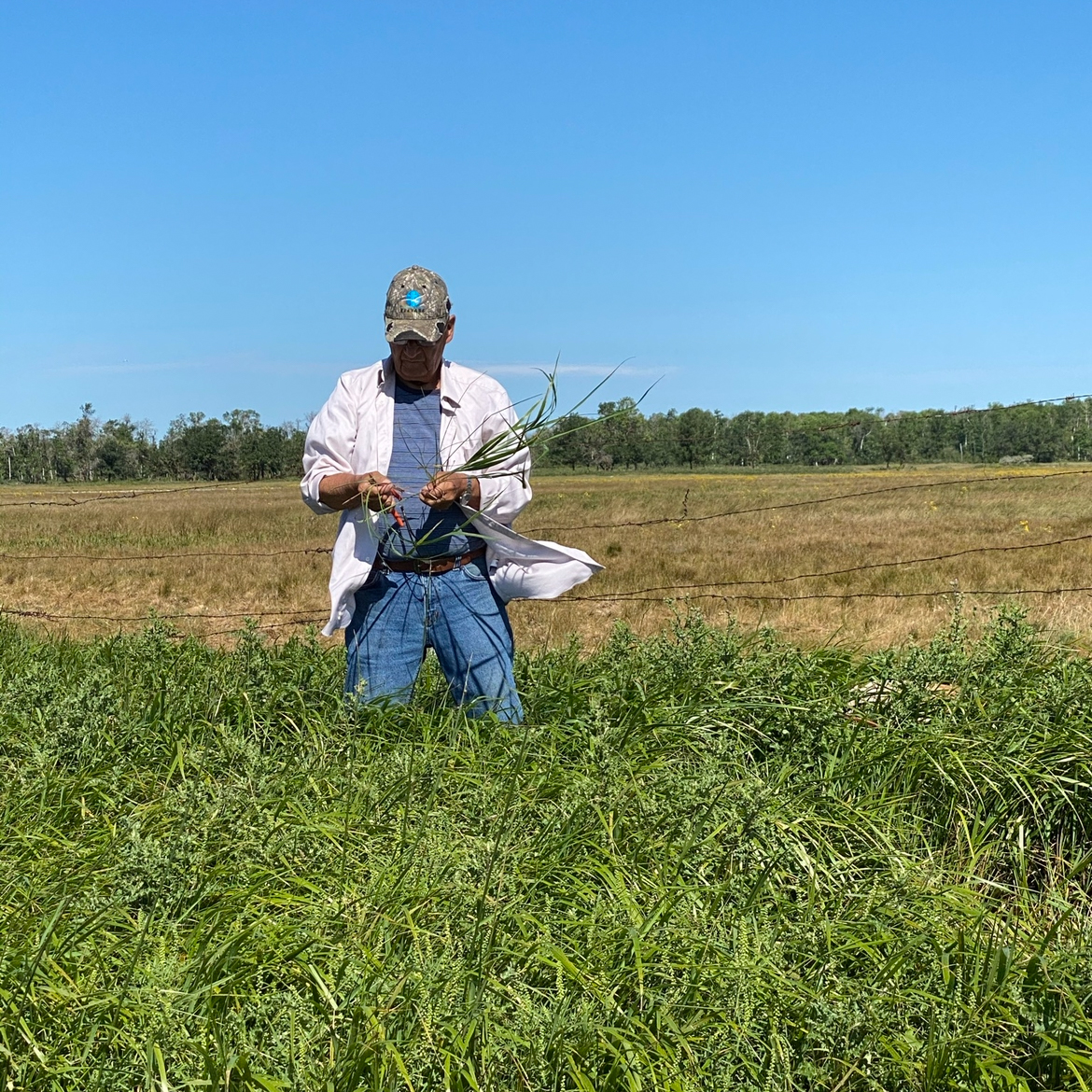
Justin Langan

Justin Langan

In the heart of Manitoba, Canada, lies the rural Swan River, where the Indigenous community’s hands weave a tale of environmental guardianship and cultural resilience. At its center are two remarkable figures: Elder Joe Campbell and Sarah “Running Bear” Ferland, embodying their people’s timeless wisdom and future hopes.
Elder Joe, a venerable member of the Opaskweyak Cree Nation, bears his 83 years with grace. His weathered hands, accustomed to the rhythm of the land, deftly weave sweetgrass, while his steady gaze, reflecting the wisdom of countless winters, speak of a sacred bond between his people and the earth. “Our connection to the land is etched deep within us; it carries our stories, our traditions,” he imparts, his voice resonating with ancestral echoes. His teachings transcend mere conservation, rooted in a spiritual reverence for Mother Earth.

Seventeen-year-old Ferland, with a passion for environmental advocacy, represents the burgeoning spirit of her generation. She sees in the wisdom of Elders like Campbell a pathway to reclaiming Indigenous methods in modern ecological endeavors. “Amidst the challenges of colonialism, our Elders safeguard invaluable knowledge,” she said, bridging the gap between past wisdom and future aspirations.
In addition to their environmental stewardship, Campbell and Ferland actively engage with the community, imparting their knowledge and inspiring the next generation. They host workshops and educational events, inviting community members to participate in traditional practices and learn about sustainable living. These efforts not only preserve cultural heritage but also foster a sense of pride and connection among the youth, empowering them to carry forward the legacy of their ancestors.
Together, Campbell and Ferland orchestrate a harmonious blend of tradition and progress. Time-honored practices such as prescribed burns to rejuvenate forests and sustainable harvests to nurture the river and fields are passed down with care and reverence.
Yet, amidst their efforts, challenges loom large. From the spectre of climate change to the struggle to preserve traditions in a rapidly changing world, the community faces adversity. Campbell’s resilience in the face of such trials speaks volumes. “We have weathered many storms, but our spirit, like the river’s flow, remains undeterred,” he said with unwavering resolve.
Ferland, too, adds her voice to the chorus, emphasizing the global implications of their local actions. “Our stewardship of the land resonates far beyond our community; it serves as a testament to the harmony we can achieve with nature,” she sadi, infusing her message with a sense of urgency and hope.
Furthermore, Campbell and Ferland advocate for Indigenous rights and sovereignty, recognizing the inseparable link between environmental and social justice. They collaborate with local and national organizations to amplify Indigenous voices in land management and conservation decision-making processes. Their advocacy extends beyond Swan River, resonating with Indigenous communities worldwide as they stand in solidarity with those fighting to protect their ancestral lands and way of life.
Ferland stands on the riverbank, her spirit determined and purposeful, encapsulating a fusion of heritage and progress, a reverence for the past, and a vision for the future. “Our actions today shape the world our children will inherit. We must honor our ancestors by protecting the land and upholding our responsibilities as stewards,” she said. Ferland highlights the urgency of addressing climate change and the need for Indigenous voices to be heard in environmental decision-making processes.
As the story of Swan River unfolds, it serves as a reminder of the interconnectedness of all life and the importance of honouring Indigenous wisdom in addressing pressing environmental challenges.
Through the resilience and determination of individuals like Elder Joe Campbell and Ferland, communities find hope and inspiration to navigate an uncertain future with courage and conviction. Their’s is a legacy of stewardship, resilience, and reverence — a testament to the enduring strength of the human spirit and the transformative power of collective action.